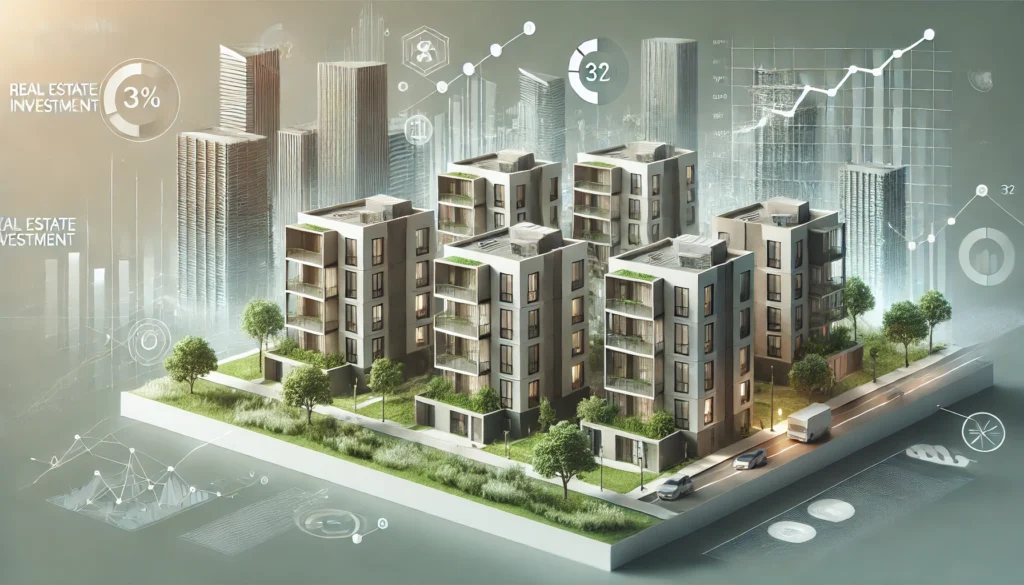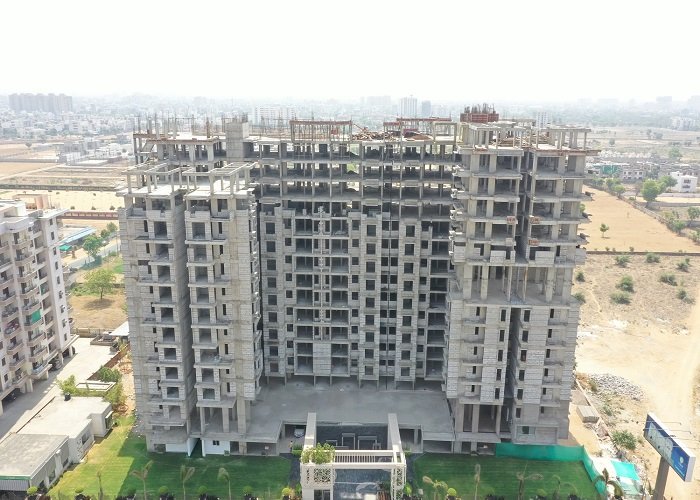When it comes to investing, the idea of owning property is a dream for many. The question, however, remains: Is buying a flat a good investment? The answer isn’t one-size-fits-all, as every investment carries its unique set of opportunities and challenges. Flats, in particular, appeal to investors for their potential to provide a stable income source and long-term appreciation. But, just like any other investment, they come with considerations that are crucial to explore.
This blog breaks down everything you need to know about buying a flat for investment. From the benefits and risks to key considerations and real-life examples, we’ll cover it all so you can make an informed decision.
Why Flats Appeal to Investors?

Real estate is often seen as a “safe haven” for investors, and flats hold a special place in this category. Flats are attractive not only because of their increasing demand in urban areas but also due to their potential for capital appreciation and rental income. Here’s why flats might be the right choice for some investors:
- Long-Term Appreciation
Over the years, real estate has shown steady appreciation, particularly in high-growth cities. A flat in a prime location can see its value increase significantly over time, especially as demand for residential spaces continues to rise in urban hubs. - Stable Passive Income
Rental income from flats is a common investment goal, providing a steady, reliable cash flow. This income can help cover monthly expenses, including mortgage payments, making it a practical choice for those looking to generate passive income. - Tax Benefits
Property ownership comes with tax perks that can lighten the financial burden. Tax deductions on mortgage interest and property taxes can reduce your tax liability, which is a plus for anyone looking to maximize investment returns. - Portfolio Diversification
Diversifying investments helps spread risk, and real estate can offer a stable counterpart to volatile stocks and bonds. Including a flat in an investment portfolio can provide that balance, offering a physical asset that maintains value over time.
Things to Consider Before Investing in a Flat
While the appeal of investing in a flat is undeniable, certain factors can influence whether it’s a good fit for you. Here’s what to keep in mind:
- Location Matters
In real estate, location is everything. Buying a flat in a rapidly developing area may offer higher appreciation rates than areas with stagnant or declining growth. Researching local market trends, nearby amenities, and future development plans can help predict a property’s potential. - Demand for the Type of Flat
The layout and size of a flat matter more than you might think. Studio apartments may be easier to rent in city centers, while 2BHK or 3BHK flats might be more attractive in suburban areas. Choose a flat type that aligns with the local rental demand to increase your rental income potential.
Construction Quality and Amenities
Investing in a flat with high-quality construction and modern amenities not only adds to its market value but also attracts more tenants. Features like security systems, recreational facilities, and energy-efficient designs can make a flat more appealing and, in turn, drive higher returns.
Potential Risks in Buying a Flat for Investment

As with any investment, buying a flat has its risks. Here’s what you need to be prepared for:
- High Initial Costs
Purchasing a flat requires a substantial upfront investment, including the down payment, registration fees, and stamp duty. Besides this, ongoing costs like maintenance and repairs can also add up, impacting your returns. - Market Fluctuations
Real estate markets can be unpredictable. Economic downturns, changes in interest rates, or even oversupply in the area can affect property values and rental demand. Unlike stocks, real estate isn’t as liquid, meaning selling quickly might not always be possible. - Variable Rental Income
While rental income can provide a reliable revenue stream, it’s not guaranteed. Finding tenants can be challenging, especially in oversaturated areas. During low-demand seasons, you may have to lower rent to attract tenants, impacting your expected returns.
Comparing Flats with Other Real Estate Investments

Real estate investments come in various forms, and it’s helpful to understand how flats stack up against alternatives:
- Flats vs. Land
Land investment offers flexibility, as it can be developed or sold in the future. However, flats offer immediate returns through rent, making them more attractive for those seeking short- to medium-term gains. - Flats vs. Commercial Property
Commercial properties may yield higher returns but come with higher risk, as they depend on economic stability and market demand. Flats, on the other hand, have a more consistent demand since housing is always a necessity.
Key Questions to Ask Before Deciding
To assess if buying a flat is the right investment, ask yourself:
- What Are My Financial Goals?
If you’re seeking steady income with gradual capital growth, a flat may suit you. But if high returns in a short time frame are your priority, other investments might be more suitable. - How Long Can I Hold This Investment?
Real estate benefits those with a long investment horizon. If you’re looking for a quick exit, a flat may not yield the returns you desire due to its slower appreciation rate. - What’s My Risk Tolerance?
Real estate can be rewarding but isn’t risk-free. Maintenance costs, potential vacancies, and market changes all affect profitability, so understanding and accepting these risks is key. - Is My Income Stable Enough?
Real estate investment requires consistent cash flow to cover mortgage payments and maintenance. If you’re financially stable with a steady income, investing in a flat could be feasible.

Real-Life Examples
To put things in perspective, here are two hypothetical scenarios that illustrate the potential outcomes of investing in a flat:
- Scenario 1: Investing in a Growing Area
An investor buys a 2BHK flat in a fast-growing suburb. Over five years, the area sees significant infrastructure development, including schools, shopping centers, and a metro extension. The flat’s value appreciates steadily, and rental income covers the mortgage, making it a sound investment. - Scenario 2: Market Downturn Impact
Another investor buys a flat in an area where supply quickly outpaces demand. Due to local economic conditions, rental demand drops, and property values stagnate. The investor struggles to find tenants and decides to sell, but market conditions mean the sale price barely covers the initial costs.
In summary, buying a flat can be a solid investment for those looking for long-term stability, passive income, and portfolio diversification. However, like any investment, it’s essential to weigh the benefits against the risks and consider your financial goals, risk tolerance, and investment horizon. Real estate has proven its worth as a reliable investment over time, but every investor should approach it with caution, research, and an open mind.
If you’re considering buying a flat, take the time to explore your options, understand the local market, and consult with financial experts to make an informed decision. After all, the right investment can open doors to financial growth and security — and a flat could be that gateway for you.
